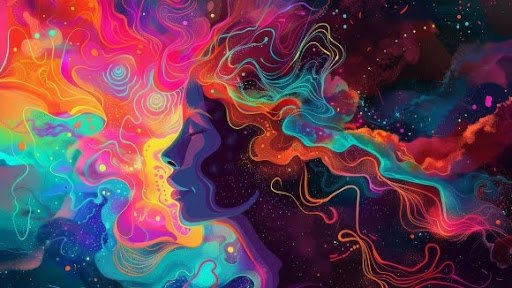Psilocybin, the active compound found in psychedelic mushrooms, is gaining increasing attention in the fields of mental health and neuroscience. With its potential to treat conditions like depression, PTSD, anxiety, and addiction, it’s no surprise that clinical trials and therapeutic practices involving psilocybin are expanding rapidly. However, this powerful psychedelic is not suitable for everyone. Understanding psilocybin contraindications is essential for ensuring safe and ethical use.
In this article, we’ll explore the physiological and psychological contraindications of psilocybin, examine the importance of proper screening, and discuss how psychedelic medicine training prepares practitioners to navigate these risks effectively.
What is Psilocybin?
Psilocybin is a naturally occurring psychedelic compound found in over 180 species of mushrooms, commonly referred to as “magic mushrooms.” Once ingested, psilocybin is converted by the body into psilocin, which interacts with serotonin receptors in the brain, particularly the 5-HT2A receptor. This interaction produces profound changes in perception, mood, and cognition.
Despite its therapeutic promise, psilocybin is a powerful psychoactive substance that can produce intense emotional and psychological effects. This is why a thorough understanding of psilocybin contraindications is critical for both users and professionals involved in psychedelic therapy.
What Are Psilocybin Contraindications?
Psilocybin contraindications refer to specific medical, psychological, or situational factors that make the use of psilocybin unsafe or potentially harmful. These contraindications can be broadly categorized into psychological, physiological, pharmacological, and social factors.
1. Psychological Contraindications
a. History of Psychosis
Individuals with a personal or family history of psychotic disorders, such as schizophrenia or schizoaffective disorder, are strongly advised to avoid psilocybin. Psychedelics can exacerbate underlying vulnerabilities, potentially triggering a psychotic episode.
b. Bipolar Disorder
People with bipolar disorder, especially those prone to manic episodes, may experience destabilization when using psilocybin. The emotional intensity of a psychedelic experience can act as a catalyst for manic or hypomanic states.
c. Severe Anxiety Disorders
While psilocybin has shown promise for treating anxiety, individuals with severe, uncontrolled anxiety or panic disorder may experience heightened fear or distress during a psychedelic session. Without proper support, this can lead to a traumatic experience.
2. Physiological Contraindications
a. Cardiovascular Conditions
Psilocybin can cause temporary increases in heart rate and blood pressure. Individuals with heart disease, hypertension, or other cardiovascular issues should consult with a healthcare professional before considering psilocybin therapy.
b. Neurological Disorders
People with seizure disorders or epilepsy may be at increased risk when using psychedelics. Although data is limited, caution is advised until more research clarifies these interactions.
3. Pharmacological Contraindications
a. SSRI and MAOI Interactions
Many people seeking psychedelic therapy are already on antidepressants. Selective serotonin reuptake inhibitors (SSRIs) can dull the effects of psilocybin, while monoamine oxidase inhibitors (MAOIs) can increase the risk of serotonin syndrome—a potentially life-threatening condition. A supervised tapering plan is often required before treatment.
b. Antipsychotics and Mood Stabilizers
Medications like lithium or antipsychotic drugs may either interfere with the effects of psilocybin or increase the risk of adverse reactions. Lithium, in particular, has been associated with seizures when combined with psychedelics.
4. Social and Environmental Contraindications
a. Lack of Support System
Integration after a psychedelic session is critical. Individuals without a support network may struggle to process their experiences, increasing the risk of long-term psychological distress.
b. Unstable Living Situations
People experiencing homelessness, domestic violence, or acute life stressors may not benefit from psilocybin therapy unless their external circumstances are first stabilized.
The Importance of Screening and Assessment
Given the complexity of psilocybin contraindications, thorough screening is essential before any psychedelic session. Most licensed psychedelic-assisted therapy programs use a detailed intake process that includes:
- Medical history review
- Mental health screening
- Medication checks
- Risk assessments
These steps help ensure that the treatment is safe and tailored to the individual’s needs. Many adverse effects associated with psilocybin arise not from the substance itself but from ignoring these critical contraindications.
The Role of Psychedelic Medicine Training
Professionals guiding others through psychedelic experiences must be equipped with the right knowledge and skills. That’s where psychedelic medicine training comes in. These programs are designed to prepare clinicians, therapists, and facilitators to understand both the therapeutic potential and the risks of psychedelic substances like psilocybin.
Core Components of Psychedelic Training
- Pharmacology of Psychedelics
Practitioners learn how substances like psilocybin interact with the brain and body. - Trauma-Informed Care
Many clients seeking psychedelic therapy have a history of trauma. A trauma-informed approach is essential to avoid re-traumatization. - Screening for Contraindications
Understanding psilocybin contraindications is a core component of all reputable training programs. - Ethics and Consent
Informed consent and ethical considerations are heavily emphasized to protect both client and practitioner. - Integration Support
Training emphasizes the importance of post-session integration to help clients make sense of their experiences and apply insights to their daily lives.
Leading Training Programs
Some of the most recognized psychedelic medicine training programs include:
- MAPS (Multidisciplinary Association for Psychedelic Studies)
- CIIS (California Institute of Integral Studies)
- Fluence
- Naropa University
These institutions ensure that practitioners are not only technically proficient but also emotionally prepared to handle the profound transformations that can occur during psychedelic therapy.
Conclusion: Safety First in Psychedelic Therapy
Psilocybin holds immense therapeutic promise, but it’s not a one-size-fits-all solution. Understanding and respecting psilocybin contraindications is a non-negotiable aspect of responsible psychedelic use. Whether you’re a prospective patient or a clinician, knowing the risks is the first step toward safe and effective healing.
Moreover, for those guiding others through these experiences, psychedelic medicine training provides the essential foundation to navigate both the promise and the peril of this potent compound. As research continues to evolve, so too must our commitment to safety, ethics, and compassionate care.







